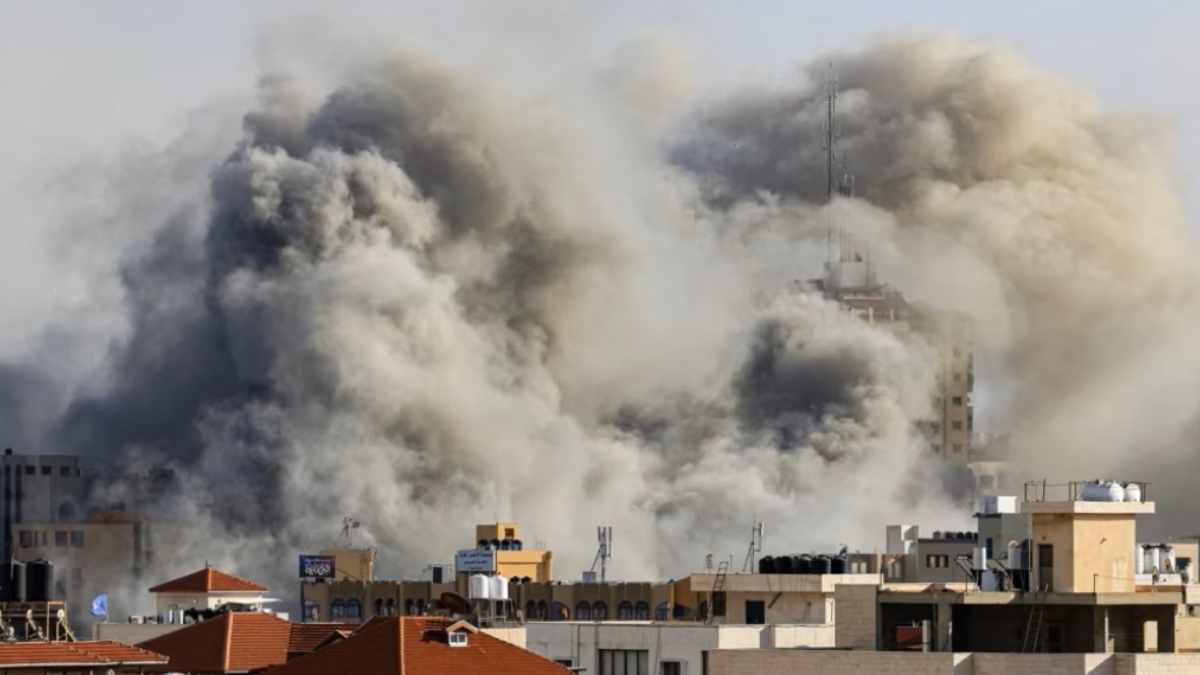The Middle East Crisis seems coming to an end after the death of more than 50,000 people spread across Israel, the Gaza Strip, the West Bank, Lebanon, Iran, Syria, Iraq, and Yemen. The glimpse of hope can be seen as new Hezbollah chief Naim Qassem has indicated to bring the hostilities with Israel to an end and the Jewish state has reciprocated the wish.
Hezbollah Offers Conditional Ceasefire
After the Israel Defence Forces consolidated its position in Lebanon and increased its ambit of operation by bombing new areas, the newly elected Hezbollah chief said in a statement the Shiite movement could agree to a ceasefire with Tel Aviv under certain conditions. In a bizarre coincidence, Israel’s security cabinet met to discuss a possible truce while its army bombed the eastern Lebanese city of Baalbek the same day.
Lebanese PM Expresses “Cautious Optimism”
In a break from the past, Lebanese Prime Minister Najib Mikati expressed “cautious optimism” about a ceasefire in “the coming hours or days” He said the US envoy Amos Hochstein had suggested “that perhaps we could reach a ceasefire in the coming days”, before November 5, when the US goes to polls.
Will Israel Agree To 60-Day Truce?
On the other hand, Israel too sent a positive signal as Prime Minister Benjamin Netanyahu held a cabinet meeting on Tuesday to discuss Israel’s demands for a 60-day truce with Hezbollah. Israel’s government has indicated that it may agree to stop hostilities if the Iran-backed militant group withdraws north of the Litani River, about 30 kilometers from the Israeli border, where the Lebanese Army could be deployed.
Biden’s Advisor In Tel Aviv
Meanwhile, US President Joe Biden’s Middle East Adviser Brett McGurk joined Hochstein in Tel Aviv on Wednesday in his attempt to push the main stakeholders to reach a deal. They will also work to end the Gaza conflict.
Mediators Huddle With Stake Holders
Earlier last month, US, Qatari, and Egyptian mediators tried to hold negotiations for a truce between Hamas and Israel. Several talks have already been held between Israeli intelligence agency Mossad’s chief David Barnea, CIA Director Bill Burns, and Qatari Prime Minister Mohammed bin Abdulrahman bin Jassim Al-Than. They met once again in Doha on Sunday and Monday.
If media reports are to be believed, the main stakeholders hope for a “short-term” truce of “less than a month.”
Conditional “Short-Term” Truce?
The main conditions of the potential truce may include the exchange of Israeli hostages for Palestinians in Israeli prisons and the arrival of international aid in Gaza. Media reports suggest Hamas may agree to discuss any ideas for a Gaza ceasefire that includes an Israeli withdrawal.
Also Read: Explained: Has Israel-Hamas-Hezbollah War Escalated Into A Fight To The Finish?
Meanwhile, Israeli Defence Minister Yoav Gallant has asked the troops to continue exerting pressure “to create the conditions necessary to ensure the return of the hostages”.
Despite coming under severe Israeli attacks, Iran has indicated that it does not want to get sucked into an all-out war with the Jewish nation. It became clear after Tehran maintained restraint and did not retaliate after IDF had attacked missiles and other military sites of the Shiite nation on October 26.
Will Iran Get Sucked Into War With Israel?
Though Supreme Iranian leader Ayatollah Ali Khamenei threatened the Jews saying it had committed “a major mistake,” nothing happened after it. Similarly, Iranian President Masoud Pezeshkian warned Israel of “a befitting reply”, but that reply is yet to come.
Also Read: India-Middle East Economic Corridor Faces Uncertainty Amid Israel-Iran Tensions
Political analysts believe Israel wants to focus on getting the economic sanctions imposed by the US and the EU member states lifted. Instead of getting into the war for the Palestinian cause, Pezeshkian wants to focus on domestic causes and improve its economic conditions.
Will Iran bite the bullet or concentrate on improving the economic conditions of its own people?













